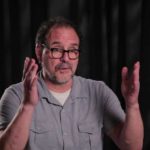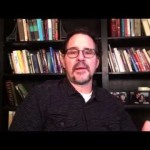We run our website the way we wished the whole internet worked: we provide high quality original content with no ads. We are funded solely by your direct support. Please consider supporting this project.
Isn’t it true that God doesn’t know the future in the open view?
This is the single most common misconception people have about the open view. Open Theists and Classical Theists disagree about the nature of the future, not about how much God knows about it. Both sides grant that God knows everything. He is omniscient. He knows everything there is to know about all of reality, including the future. The disagreement is that, whereas Classical Theists believe that the future consists entirely of settled realities — and thus hold that God knows it as entirely settled — Open Theists believe that the future is partly comprised of possibilities — and thus hold that God perfectly knows it as partly comprised of possibilities.
Have you ever read one of those Choose Your Own Adventure books? The author writes out a number of possible story lines from which a reader can choose. The reader has a choice about which story line they want to read, but would anyone say the author of the book doesn’t know the future of their own book because of this? Of course not. It’s just that, in contrast to novels that include only one story line, their book includes a number of possible story lines, and the author knows all of them.
So it is with God in the open view. God creates something like a “choose your own adventure” world. The Creator sets up the parameters of human freedom and pre-settles whatever he wants to pre-settle while leaving open to human free will whatever he wants to leave open. He foreknows perfectly all the possible story lines that free agents could follow. Now, would you say this Creator doesn’t know the future? How could we say this? He foreknows all the possible story lines.
The difference between the classical view of the future and the open view of the future is that, in the open view, God has to know much more than in the classical view, just like the author of a Choose Your Own Adventure book must know more than a traditional novelist in knowing his book. But Open Theists are convinced God is capable of this much more extensive knowledge.
Category: Q&A
Tags: Open Theism, Q&A
Topics: Open Theism What it is and is not
Related Reading

The Cosmic Dance Origin Story
In this video, Greg introduces The Cosmic Dance, by explaining what motivated him to write this quirky little book. If you live near the Twin Cities, come to the launch party Friday June 24th where you can purchase the book at a discounted rate. Click here for information on the launch party.

Podcast: Where Does Omniscience Fit In Within Open Theism?
Greg pontificates on what God knows. http://traffic.libsyn.com/askgregboyd/Episode_0280.mp3

How do you respond to Matthew 21:1–5?
Jesus commanded his disciples, “Go into the village ahead of you, and immediately you will find a donkey tied, and a colt with her; untie them and bring them to me. If anyone says anything to you, just say this: ‘The Lord needs them.’ And he will send them immediately” (vs. 1-4). Though this verse…

Hearing and Responding to God: Part 1
A reader contacted Greg asking about making “right decisions” assuming an open future and in light of the fact that God seems to rarely speak clearly. In this first response, Greg acknowledges that even with the best of intentions, our decisions can have outcomes that are unexpected even to God! How can we move forward…

What is the significance of Jeremiah 3:19–20?
“I thought how I would set you among my children…And I thought you would call me, My Father, and would not turn from following me. Instead, as a faithless wife…you have been faithless to me…” If the future is eternally and exhaustively settled, and if God therefore knows it as such, he could not have…

What Does It Mean that God Hardens Hearts?
Some argue that passages which speak of God hardening human hearts (Jos 11:19-20; Ex 7:3; 10:1; Rom 9:18) demonstrate that God controls everything, including people resistant to this declared intentions. He hardens whomever he wills, they argue. He could just as easily have softened their hearts, but for his own sovereign reasons he chose not…
